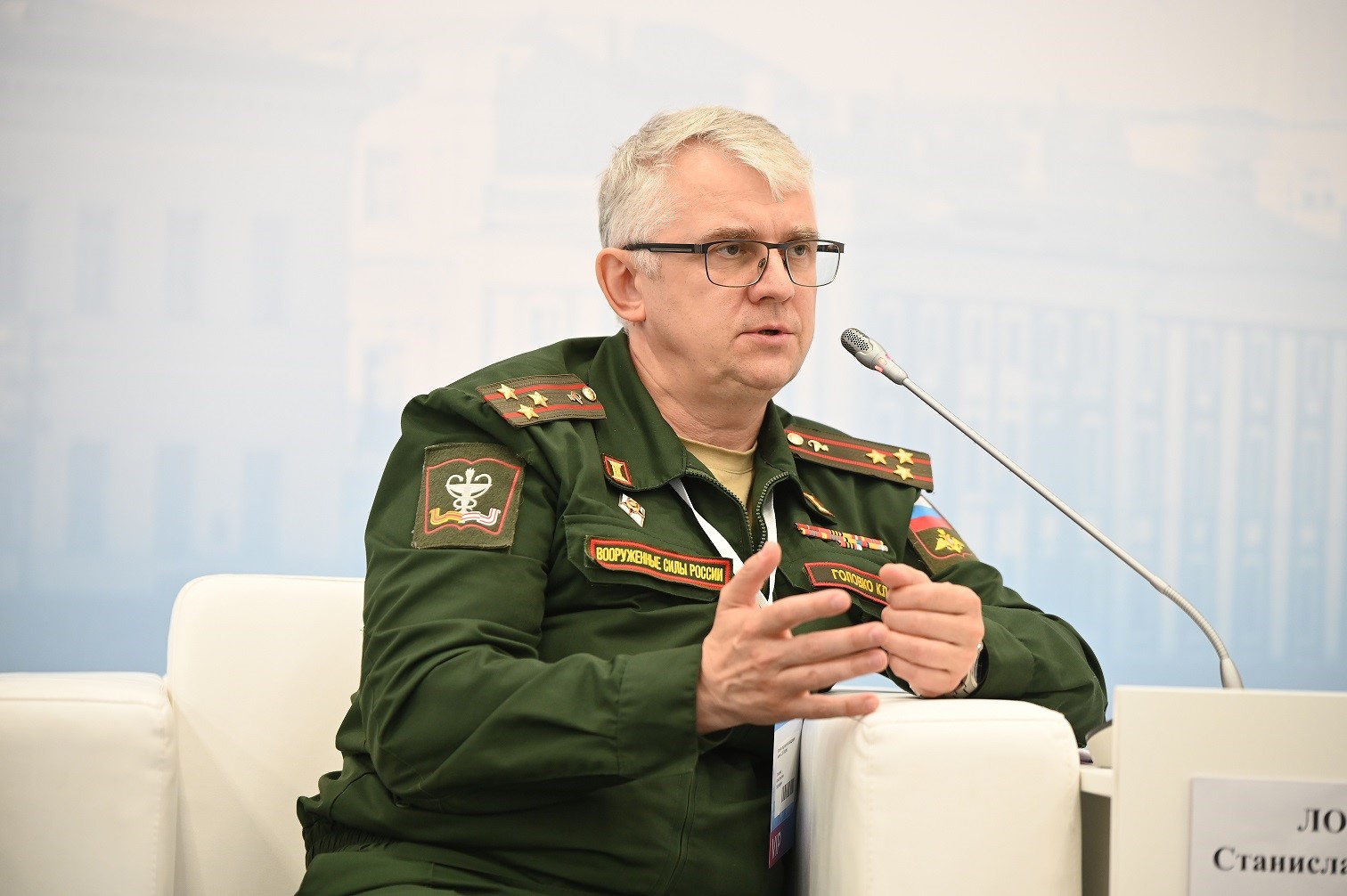Genetics for the military

In the near future, genetic research may become one of the most demanded areas of medical development, including military research. This was discussed by the participants in the Debate «Applied Issues of Genetic Research: Challenges and Prospects» organized as part of the 6th Conference «Military Medicine of the 21st Century», held at EXPOFORUM, in course of Day Two of the 12th St. Petersburg International Health Forum.
«Russia needs a program for developing genetic technologies that is comparable in scale to atomic and space projects of the 20th century», recalled Aleksandr Gerasimov, Senior Researcher at the Research Laboratory of Pediatric Neurosurgery at the Professor A.L. Polenov Russian Research Institute of the V.A. Almazov National Medical Research Centre, the audience the Russian President Vladimir Putin’s words spoken back in 2020.
By now, according to Aleksandr Gerasimov’s estimates, a lot has been done in this areas. In particular, the fundamental accessibility of cytogenetic, biochemical and molecular genetic diagnostics has been achieved, and the procedure for providing care to patients with congenital or hereditary genetic diseases has been developed and approved. The importance of genetic research for medicine becomes increasingly obvious, and the range of its application is wide even today, from personalized traumatology to occupational selection.
Aleksandr Gerasimov emphasized that for military medicine, genetic research is also relevant. They can be used for making wound treatment, acute and chronic cognitive impairments more effective, minimizing muscle fatigue, and better adapting people to extreme conditions.
«In a hospital setting, genetic data can change the tactics of care and the prognosis of the condition», noted the scientist.
However, as he stressed, military medicine has its own features, for example, there is simply no time to conduct genetic research in emergency situations.
«The only solution is mass routine screening, and the first steps in this area have already been taken», said Aleksandr Gerasimov.
«It is required to create a human genetic passport», agrees Irina Spivak, Senior Researcher at the Research Laboratory of the Research Centre of the S.M. Kirov MMA. Under her guidance, the team of scientists from the Military Medical Academy has developed the methodology for selecting the contingent for serving in the Arctic Region, based on genetic analysis. Irina Spivak explained the relevance of their research by the circumstance that the Arctic is a high-risk area for people facing severe weather conditions, unusual lighting conditions, logistical and social problems, which are collectively referred to as Arctic (or northern) stress. However, it is obvious that someone adapts to new conditions better, and this is determined by the person’s genetic nature. For finding out exactly what the secret of adaptation to extreme Arctic conditions is, scientists conducted the medical examination and genotyping of 400 practically healthy men at the age from 22 to 35 years old, serving in the Arctic, and revealed reliable links between the genotype and adaptive ability. Irina Spivak told that, for example, optimal adaptation to extreme external conditions is ensured by the presence of the Val/Val genotype of the BDNF gene, and psychologically by enhanced creative abilities.
Genetic research can also help combat the growing resistance to antibiotics, which is turning into one of global problems of the contemporary medicine. No matter how much antibiotics people invent, after some time, microorganisms inevitably adapt to them, which makes treatment ineffective, explained Sergey Morozov, Ajunct Professor at the S.M. Kirov Military Medical Academy, Captain of the Medical Service. Herewith, he is confident that polygenomic DNA sequencing of strains isolated from patients with infectious complications of combat surgical trauma, being treated at military medical organizations, will make it possible to identify markers of a particular patient’s resistance to antibiotics and carry out the most efficient treatment.
«Genetic research can also help treat chemical and radiation injuries», added Leila Arzhavkina, Senior Researcher at the Military Therapy Research Laboratory of the Research Centre of the S.M. Kirov MMA, Associate Professor at the Department of Medical Genetics at the I.I. Mechnikov Northwestern State Medical University, Candidate of Biological Sciences. The research conducted by her team proved that cytogenetic tests can be used for identifying and confirming the fact of injury, defining what dose and what substance the person received, and making the real prognosis of the victim’s condition. According to Leila Arzhavkina, the latter is especially relevant, since such injuries are often complicated with delayed negative consequences that manifest themselves long after the traumatic impact.